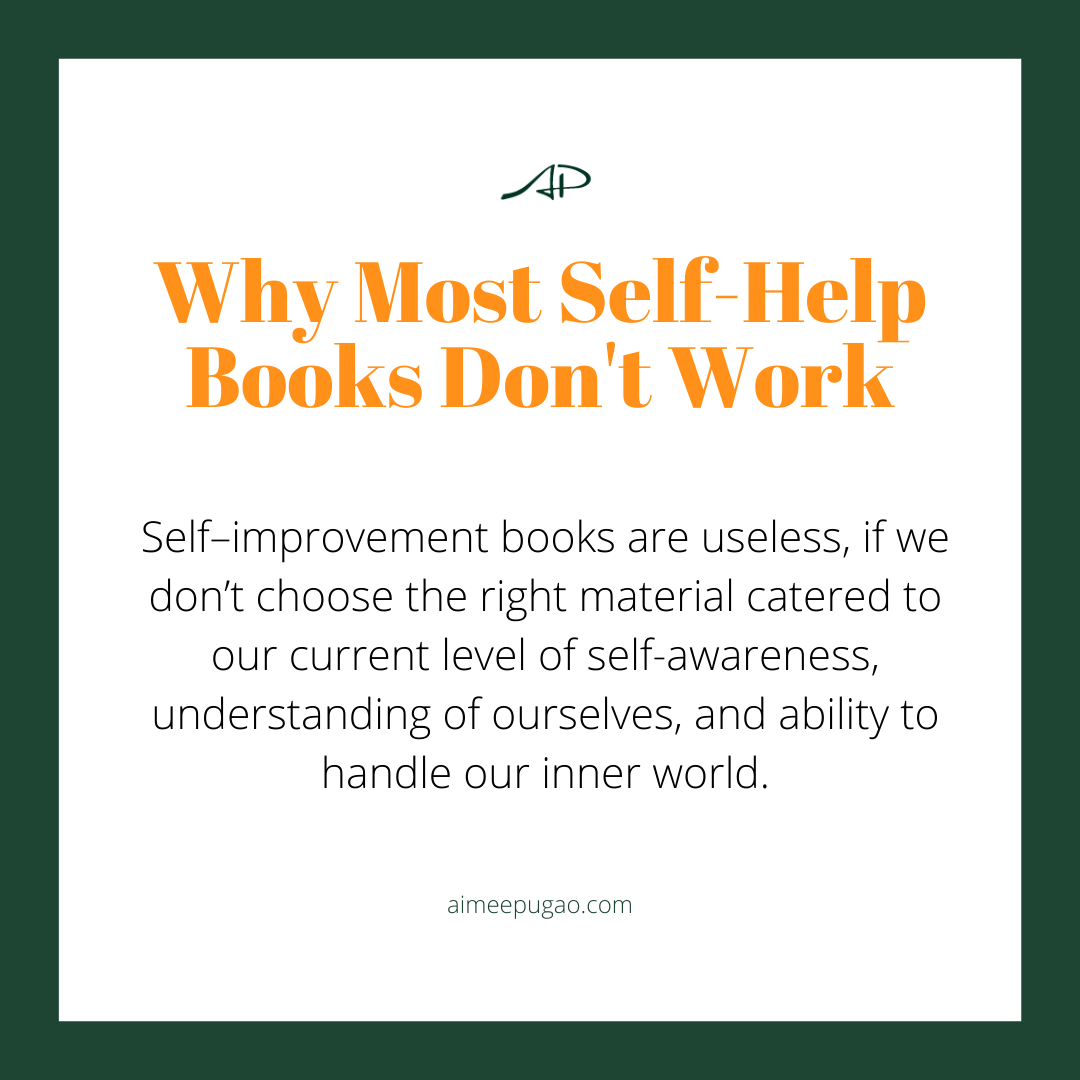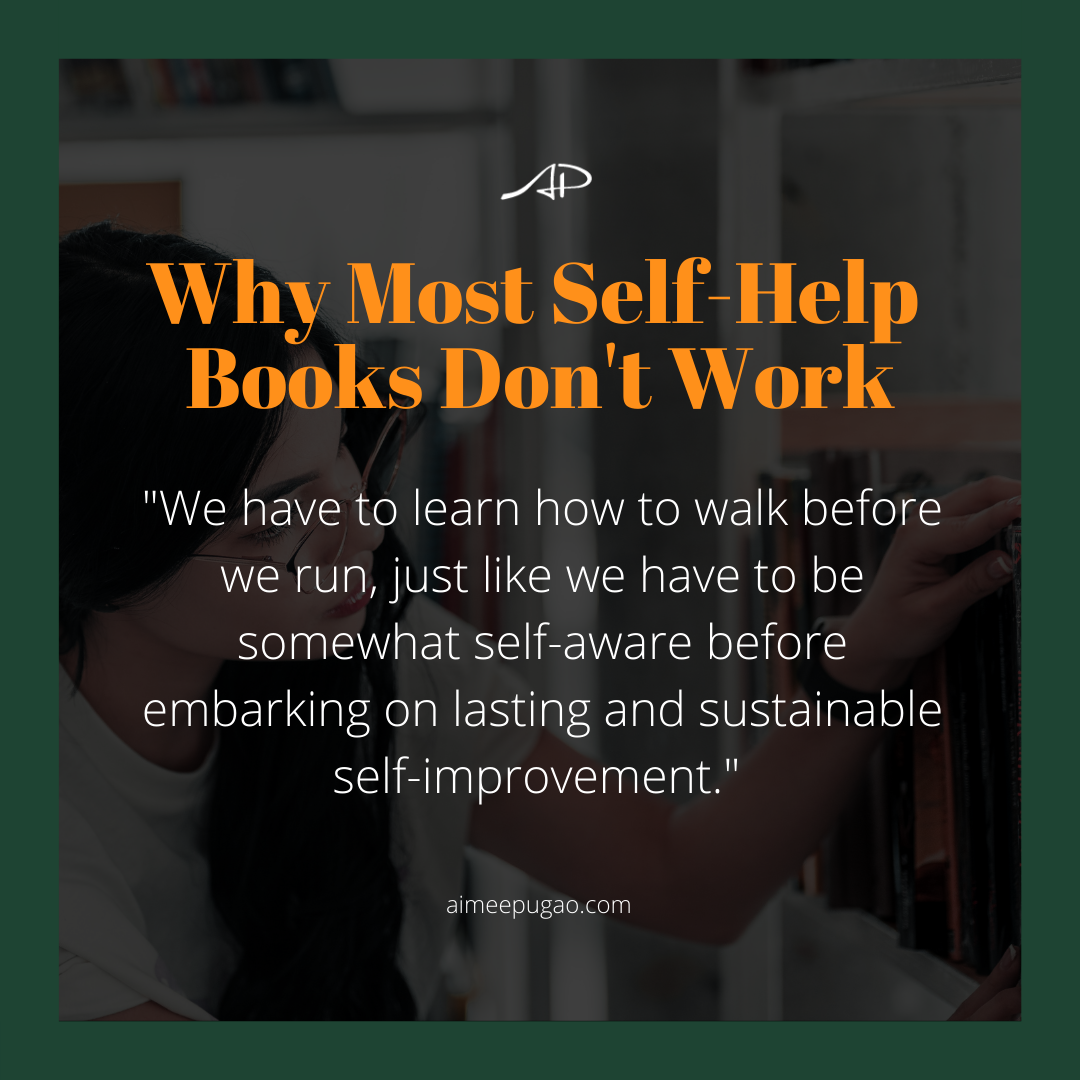Self-improvement books tend to focus on idealistic conduct and personal performance; it ignores the reader’s current consciousness to carry those recommended goals and aspirations through. We all have different subconscious levels, which dictate our temperament, behaviours, previous experiences, present circumstances, beliefs, and relationships with ourselves and others.
There’s so much happening on the subconscious level with most of us that approaches to self-help can be difficult to decipher. Most self–improvement books are useless if we don’t choose appropriate material catered to our subconsciousness level and ability to handle our inner world.
What is the subconscious?
The subconscious contains all the information our minds collect, thoughts and emotions we haven’t fully processed. It stores all our limiting beliefs, unhealed trauma, emotional sensitivities, unprocessed pain, unhealthy coping mechanisms. When we overreact to a scenario, our subconscious mind is at play when an event triggers us.
Sometimes we are aware of our subconscious programming and patterns but can’t break free from them. When we draw out information stored in the subconscious and bring it to our conscious awareness, that is the practice of cultivating self-awareness.
When We Have Self-Awareness
We can mentally and emotionally process and implement resolutions and with ease as we encounter a mishap. We are aware and can control our defensive responses. We provide compassion for ourselves and others. We understand that everyone is unique and lives life differently. We can acknowledge and productively guide our internal dialogue. We can look at situations objectively and take the necessary course of action logically to correct the imbalance.
When We May Need to Cultivate Greater Self-Awareness
When we may let our emotions determine our course of action, when we encounter a stressor, we process our emotions slowly or, if not at all. We are unaware of our feelings. The way we cope can be through the utilization of substances or distraction. We tend to be prone to projection, blame, defensiveness, diversion, shame, guilt and carry long-standing resentments.
We can have a high degree of self-awareness when we are in work dynamics. Professional situations may need to cultivate when dealing with our relationships, such as parents, partners, or children.
At different stages in our lives, we can be at varying levels. There’s nothing wrong or right about our self-awareness level, but if we want our self-help material to be effective, it needs to cater to our current level.
Most self-help books give us guidance and methodologies to shift our way of thinking and acting. They work on First or Second-Order Change. However, there’s a narrow audience these works for. Those who are already emotionally and mentally resolute need slight suggestions to make these marginal mental shifts. If our self-awareness is on the lower end, we need to choose Self-Help material to target our subconscious core beliefs and material, which focuses on Third-Order Change.
What are the Orders of Change?
Researchers discuss first-order, second-order and third-order change as it applies to interventions to organization development; however, these changes can be applied to the genre of Self-Help.
First-order change is a tactic to reinforce present understandings. It’s about doing more or less of something within the existing process. An example would be swapping one addiction for another, such as avoiding smoking. We become addicted to running. The compulsion is still present. It just has been swapped for a new vice. Running might be seen better than smoking. However, there is really no differentiation. A compulsion is still a compulsion, and now running is used as the new crutch.
Second-order change is the conscious modification of the present system in a specific direction. It involves a deliberate alteration and seeing the world differently from a Self-Help perspective, with little to no analysis or thought on sub-conscious conditioning.
We would practice second-order change by phasing in new beliefs and actions, thereby eliminating previous conditioning. It’s forming new habits and practicing them continuously, eventually eliminating and replacing old habits. Much Self-Help material works on this level. It can be more effective, but if unconscious beliefs are still underlying, applying the material will take rigorous practice, conscious thought and actions to implement. Books like 7 Habits of Highly Effective People by Stephen Covey or The Four Agreements: A Practical Guide to Personal Freedom by Don Miguel Ruiz work on Second-order change.
Third-order change is people’s training to be aware of the present system and change the system as people see fit. In terms of Self-Help, it is about rewiring our past experiences and thoughts and seeing ourselves as the creator of our lives. This type of change rewires our subconscious beliefs, the situations, and the circumstances that led to our current underlying behaviours and feelings. If we continuously self-sabotage, our underlying belief might be that we are not worthy of love. We would get to the root of that belief and eliminate it. How it would look like when we misstep or encounter an unforeseen event, we can respond, manoeuvre, and pivot logically and accordingly with little tension or stress. Books like Homecoming by John Bradshaw, The Power is Within You by Louise L. Hay, or The Body Keeps the Score by Bessel A. van der Kolk and methods like inner child healing, EMDR, meditation, specialized types of yoga practices, to name a few – work on Third-order change.
First-order change can switch our habits and outer behaviours but not our core subconscious beliefs. If we already have a stable emotional base, Second-order Change material will easily work for us. However, those of us who are emotionally reactive, often easily stressed, need to heal and reconfigure our core beliefs. Without Third-Order Change, our modified behaviours generally become short-lived, and we are bound to repeat our previous mistakes, situations, and thought patterns.





